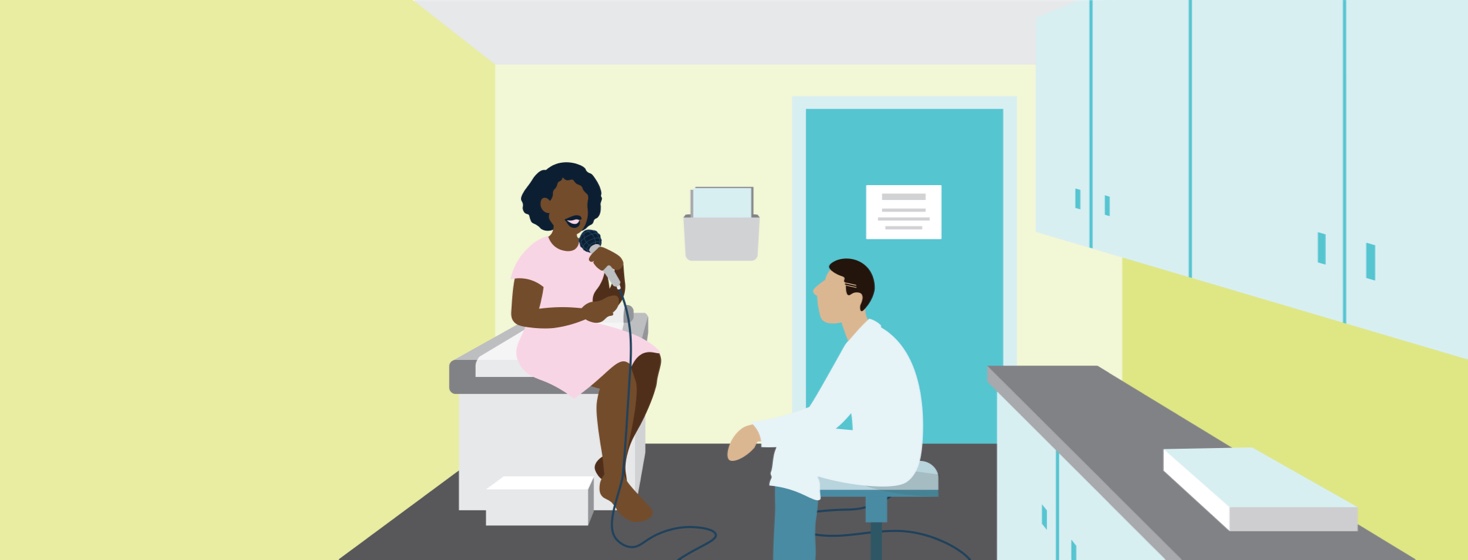How to Advocate for Yourself at the Doctor
Going to the doctor can be intimidating for people, especially when you are not feeling well to begin with. Many women also report not being taken seriously or their reported pain being minimized or dismissed by doctors. Advocating for yourself can help you get an early diagnosis and the right treatment sooner.
What is shared decision-making?
One thing to look for is that your doctors practice shared decision-making. This is a way of communication in which all parties work together to make the best healthcare decision for you. It involves:1
- Clear and accurate medical evidence about benefits and risks for each treatment, including no treatment
- Open communication and tailoring the evidence for your specific situation
- Your goals, informed preferences, and concerns are acknowledged
By working together, your voice is heard and you have an active say in your treatment plan and healthcare.
This is important in ovarian cancer and its treatment. Making an informed decision about the kind of treatment you will have and when to stop treatment is based on clear information. Communication is key at each stage of the illness, from diagnosis through recovery. Being an active participant helps you feel more comfortable with each step.
Why is it important to advocate for yourself?
It is important to advocate for yourself to get your needs met. For women, this is especially true. Women’s pain is more likely to be misdiagnosed or dismissed by doctors as something less severe. Gender and racial bias also come into play, whether consciously or unconsciously.2-4
Doctors may think you are “too young” to have cancer, they may minimize the severity of your symptoms. Or, they may tell you to come back if things get worse. All of this can delay a diagnosis. People of color are also more likely to be judged and treated with lower levels of attention and pain medicine than white people.3,4
Studies show women are more likely than men to be told by doctors that their pain has psychosocial causes like stress. Doctors were also more likely to order lab tests for men with similar symptoms. Black people are 22 percent less likely than white people to get pain medicine from their doctors. Doctors also underestimate the pain level of people of color.4
You know your body best. Early detection of ovarian cancer is important. Advocating for yourself can help you get the screening tests you need to rule out cancer or come to a diagnosis.
Things you can do to advocate for yourself
There are many different ways you can advocate for yourself. Some things you can do include:4
- Find a doctor you can trust and who listens to you
- If you are not happy with your current doctor, get a second opinion
- Present your symptoms and concerns factually and concisely
- Be informed about the typical screenings and tests done for your age group
- Speak up if you have concerns or questions
- If your symptoms are being ignored, say something like “What could be causing this?”
Having a good relationship with your doctor and healthcare team is important. You deserve to feel heard and respected and taken care of. Asking questions and advocating for yourself helps you take an active role in your own healthcare.
Do you have suggestions or tips about how to advocate for yourself at the doctor's office? Share your thoughts in the comments!

Join the conversation